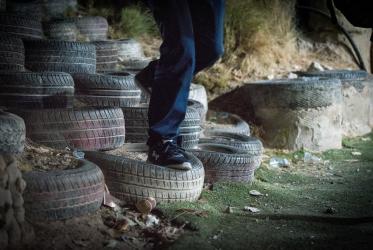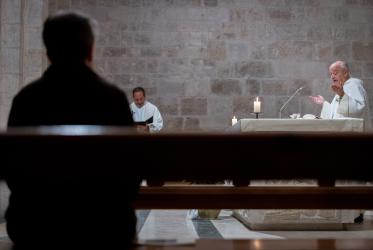Displaying 1 - 20 of 374
WCC, WHO commemorate 50 years of collaboration
04 April 2024
Voice of churches vital during UN women’s rights talks
28 March 2024
Entre los escombros resuenan palabras de firmeza
25 March 2024
Compendium of Promising Practices of African Faith Community Interventions against Paediatric and Adolescent HIV
Executive Summary
23 March 2024
Words of steadfastness ring from the rubble
21 March 2024
¿Qué pueden hacer las iglesias para prevenir la esclavitud moderna?
26 February 2024
What can churches do to prevent modern slavery?
22 February 2024











